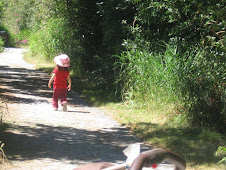The arrival of a brand new baby in any family is an exciting event for family and friends alike. The temptation is to rush out like everyone else does and get pink or blue of this or that. But what would really be the best and most appreciated gifts for parents of that wonderful new addition? The following are some ideas:
- Take casserole, lasagna or one-dish meals that can be put into the freezer. Bringing a little something for the baby would always be appreciated but not having to worry about cooking meals for the first week or so would be an especially appreciated gift. Every new parent is busy when they get home from the hospital, especially if there are other children that require care too. A new baby creates a complete change in the family unit until mom, dad and siblings have adjusted to the new arrival.
- Give gift certificates for pizza, Chinese or other food delivery services. New parents will appreciate any gift that will give them more time or that make things easier for them. Most parents of newborn babies get very little sleep in those first few weeks so energy will be running on low.
- Volunteer your time to do housework, laundry, cook meals that can be frozen, sterilize bottles, look after baby while mom gets some much needed sleep or run errands that may need to be done. This will be especially important if the new dad was not able to get time off work to help in those first few difficult and tiring weeks. Often new moms are having problems establishing a nursing routine, will have sore nipples or not enough milk which will add to the stress of being overly tired. Under circumstances such as these, everything becomes so much more difficult. Someone who is available to handle the extra chores would be appreciated by a new mother.
- If there are other children in the family, offer to take them for a few hours, a day or overnight and let the parents concentrate on the new baby. This will give the older child a chance to feel that he is having some special time for himself. This would be particularly helpful if there is any jealousy because of the new baby.
- Give a set of coupons of your own making that new parents can use at any time. These coupons could include: an evening of babysitting, vacuuming, gardening, chauffeuring, etc. There can be other ideas that will be more pertinent to each individual couple.
- Or, take the new baby for a walk so mom and dad can spend some time with the older child or children so they will not become jealous of their new sibling.
From my experience of having been the mother of five newborn babies, I know that the above ideas would have been very much appreciated and been my personal favorites. Another gift idea that is a little different from the usual ones of outfits and stuffed toys would be a grow chart. There are some very nicely decorated ones on wood that will last for years. They can be personalized with the baby's name also. Another one, if you are close to the family, is to do an album of the baby's first hours, first bath, including the parents and any older children.
All gifts for a new baby are welcome and appreciated but the gift of time, which most of the above gifts are, will probably be the best of all.
Wednesday, April 21, 2010
Tuesday, April 20, 2010
The Three Styles of Parenting
The style of parenting we each choose when raising our children may be determined based on how we were raised or it may be in reaction to how we were raised. It could also be based on a decision to be proactive by making the effort to read books or take classes on how best to parent our children. The following are the three main styles of parenting:
- Authoritarian - This style of parenting ensures that the parent is in control. They will make a particular effort to exert control over the child. Children will be given no choices and no reason why things can't be done other than how the parent wants it done. There are usually strict rules that are enforced and if the child does not adhere to these rules, they will be harshly punished. Parents who parent in this way are often critical of their children and will focus on bad behavior rather than good. Parents who practice an authoritarian style of parenting are generally not responsive or affectionate with their children. These children will often have difficulty thinking for themselves; will have lower self-esteem and will likely not be as happy as children raised in a different parenting style.
- Permissive - The permissive parent gives complete control to the child. They will have few rules, fewer routines and likely few boundaries, if any. Their parenting style is inconsistent because they don't follow through on anything. Their children will have many choices, and often ones that are inconsistent with their ages. They are indulgent parents who don't want to get involved in disputes with their children. For this reason there will be little discipline. These types of parents tend to be warm and loving and prefer to be their child's friend rather than a parent. Children raised by permissive parents are often not happy, may perform poorly in school and may have problems with authority figures.
- Democratic - The democratic parent will help their children learn to be responsible; to think about the consequences of their behavior; will have reasonable expectations for their children and will monitor their behavior. These parents focus on good behavior and if poor behavior is exhibited, a better way of doing something is explained or shown to the child rather than harshly punishing them. Choices are given to the child relative to their age. These parents are warm and loving and know that for good parenting to be effective a bond must be established between the parent and child. This style of parenting produces the most positive results with happier and more successful children.
A fourth, but not as common style of parenting is the Uninvolved Parent. This parent makes few demands on the child and will have limited communication with them. These parents will tend to lead lives that are full and complete but quite separate from their children. The children's basic needs are met but they receive little warmth and nurturing. These children will have less self-esteem and be less competent than children raised with other styles of parenting.
Because of the different parenting styles, and because each individual determines their parenting style based on various situations, a potential problem can arise when individual parents each have their own completely different styles of parenting. This will not only cause confusion with the children but can contribute to problems in coming to terms on mutual decisions when raising a family.
Although parenting can be one of the toughest jobs there is, it can also be one of the most satisfying. If we can approach parenting using a parenting style that is likely to be the most successful in raising happy and successful children, we will reap the rewards in later years, and so will our children.
- Authoritarian - This style of parenting ensures that the parent is in control. They will make a particular effort to exert control over the child. Children will be given no choices and no reason why things can't be done other than how the parent wants it done. There are usually strict rules that are enforced and if the child does not adhere to these rules, they will be harshly punished. Parents who parent in this way are often critical of their children and will focus on bad behavior rather than good. Parents who practice an authoritarian style of parenting are generally not responsive or affectionate with their children. These children will often have difficulty thinking for themselves; will have lower self-esteem and will likely not be as happy as children raised in a different parenting style.
- Permissive - The permissive parent gives complete control to the child. They will have few rules, fewer routines and likely few boundaries, if any. Their parenting style is inconsistent because they don't follow through on anything. Their children will have many choices, and often ones that are inconsistent with their ages. They are indulgent parents who don't want to get involved in disputes with their children. For this reason there will be little discipline. These types of parents tend to be warm and loving and prefer to be their child's friend rather than a parent. Children raised by permissive parents are often not happy, may perform poorly in school and may have problems with authority figures.
- Democratic - The democratic parent will help their children learn to be responsible; to think about the consequences of their behavior; will have reasonable expectations for their children and will monitor their behavior. These parents focus on good behavior and if poor behavior is exhibited, a better way of doing something is explained or shown to the child rather than harshly punishing them. Choices are given to the child relative to their age. These parents are warm and loving and know that for good parenting to be effective a bond must be established between the parent and child. This style of parenting produces the most positive results with happier and more successful children.
A fourth, but not as common style of parenting is the Uninvolved Parent. This parent makes few demands on the child and will have limited communication with them. These parents will tend to lead lives that are full and complete but quite separate from their children. The children's basic needs are met but they receive little warmth and nurturing. These children will have less self-esteem and be less competent than children raised with other styles of parenting.
Because of the different parenting styles, and because each individual determines their parenting style based on various situations, a potential problem can arise when individual parents each have their own completely different styles of parenting. This will not only cause confusion with the children but can contribute to problems in coming to terms on mutual decisions when raising a family.
Although parenting can be one of the toughest jobs there is, it can also be one of the most satisfying. If we can approach parenting using a parenting style that is likely to be the most successful in raising happy and successful children, we will reap the rewards in later years, and so will our children.
Friday, April 16, 2010
Being a Stay-at-Home Mom - How to Manage Financially
If the desire to be a stay-at-home parent is strong enough, begin by assessing what can be done at home to bring in a little extra money and how savings can be made without anyone suffering. In an effort to be at home with my children, I realized that there were several ways I could accomplish this.
I discovered that there were jobs where I could take my children with me; I could have a small in-home business to work around my parenting timetable and/or I could save on costs in order to have more useable income. Over the time my five children were pre-schoolers, I employed all of these methods. It also helped considerably that my husband worked steadily and made decent money.
I began by considering the talents I had but especially what could be worked around my children's schedules, their ages and even their individual personalities. I realized there were several things I could do to earn extra money and which didn't disrupt time with my children.
- I did housecleaning and laundry for seniors while taking my children with me. (This worked when I had only one and two children. Thankfully, they were well behaved and by taking toys for them to play with, and letting them 'help', the situation worked quite well. It did not work as well when I had three children.)
- I then started a small daycare, looking after two and sometimes three extra children. (This worked well until my fifth child came along.)
- So I started a small in-home business begun when my fifth child was about one year old. (Here I went back to considering my talents). I had earlier purchased a small kiln and used it as a hobby. After taking some courses, I began to give instruction in ceramics after my children had been tucked into bed. I was able to have classes three evenings a week and eventually it expanded to 36 students. These continued until my fifth child began school.
To contribute also to the amount earned, I cut costs where I could and saved in areas where I could do things myself:
- I made many of the children's clothes when they were small as well as many of my own. I was also happy with hand-me-downs and shopped at discount outlets.
- I cut the children's hair myself, as well as my own. It's true that I wasn't a fashion leader but that wasn't my aim at that time. (It still isn't).
- I made Christmas gifts, birthday gifts, Christmas ornaments and Hallowe'en costumes.
- I sewed and did my own home decorations, recovered our sofa and chair, made curtains, drapes, bedspreads and decorative pillows.
- I used coupons and watched for specials and sales.
- Baking was done from scratch.
- Vacations were simple family camping trips and occasionally included a special trip such as Disneyland.
- I swapped outgrown children's clothes with friends.
- Took turns babysitting.
- Served basic wholesome food rather than more expensive gourmet foods or fancy sugary concoctions like some of the cereals offered.
- Purchased from the day-old bins. In this way food costs were reduced considerably.
- We reused and recycled.
- We made up games and friends and family were a large part of our social life.
There are many ways to be financially creative. Saving and being economical became something our whole family participated in especially as the children grew old enough to understand the value of money. Children don't need to have the latest toys advertised on T.V. and they can be taught to be creative in their play. I found that probably one of the most important things when trying to save is not being tempted into spending money on something that wasn't absolutely necessary.
Many people emphatically declare that it takes two people to work nowadays in order to raise a family. I disagree that this is an absolute necessity. In my opinion, it depends how badly you want to raise your own children versus having nice furniture, a new home to show off, new cars in the driveway, tendy clothes and everything else that goes with this lifestyle. (There are many single moms and dads raising children alone on one income so the arguement of 'it takes the income of two parents working to raise a family' is not particularly valid.)
And I believe that with a little thought, and energy, almost everyone can be financially creative and resourceful. It is worth the effort if being a stay-at-home mom is a priority in your life.
I discovered that there were jobs where I could take my children with me; I could have a small in-home business to work around my parenting timetable and/or I could save on costs in order to have more useable income. Over the time my five children were pre-schoolers, I employed all of these methods. It also helped considerably that my husband worked steadily and made decent money.
I began by considering the talents I had but especially what could be worked around my children's schedules, their ages and even their individual personalities. I realized there were several things I could do to earn extra money and which didn't disrupt time with my children.
- I did housecleaning and laundry for seniors while taking my children with me. (This worked when I had only one and two children. Thankfully, they were well behaved and by taking toys for them to play with, and letting them 'help', the situation worked quite well. It did not work as well when I had three children.)
- I then started a small daycare, looking after two and sometimes three extra children. (This worked well until my fifth child came along.)
- So I started a small in-home business begun when my fifth child was about one year old. (Here I went back to considering my talents). I had earlier purchased a small kiln and used it as a hobby. After taking some courses, I began to give instruction in ceramics after my children had been tucked into bed. I was able to have classes three evenings a week and eventually it expanded to 36 students. These continued until my fifth child began school.
To contribute also to the amount earned, I cut costs where I could and saved in areas where I could do things myself:
- I made many of the children's clothes when they were small as well as many of my own. I was also happy with hand-me-downs and shopped at discount outlets.
- I cut the children's hair myself, as well as my own. It's true that I wasn't a fashion leader but that wasn't my aim at that time. (It still isn't).
- I made Christmas gifts, birthday gifts, Christmas ornaments and Hallowe'en costumes.
- I sewed and did my own home decorations, recovered our sofa and chair, made curtains, drapes, bedspreads and decorative pillows.
- I used coupons and watched for specials and sales.
- Baking was done from scratch.
- Vacations were simple family camping trips and occasionally included a special trip such as Disneyland.
- I swapped outgrown children's clothes with friends.
- Took turns babysitting.
- Served basic wholesome food rather than more expensive gourmet foods or fancy sugary concoctions like some of the cereals offered.
- Purchased from the day-old bins. In this way food costs were reduced considerably.
- We reused and recycled.
- We made up games and friends and family were a large part of our social life.
There are many ways to be financially creative. Saving and being economical became something our whole family participated in especially as the children grew old enough to understand the value of money. Children don't need to have the latest toys advertised on T.V. and they can be taught to be creative in their play. I found that probably one of the most important things when trying to save is not being tempted into spending money on something that wasn't absolutely necessary.
Many people emphatically declare that it takes two people to work nowadays in order to raise a family. I disagree that this is an absolute necessity. In my opinion, it depends how badly you want to raise your own children versus having nice furniture, a new home to show off, new cars in the driveway, tendy clothes and everything else that goes with this lifestyle. (There are many single moms and dads raising children alone on one income so the arguement of 'it takes the income of two parents working to raise a family' is not particularly valid.)
And I believe that with a little thought, and energy, almost everyone can be financially creative and resourceful. It is worth the effort if being a stay-at-home mom is a priority in your life.
Tuesday, April 13, 2010
Being a Stay-At-Home Mom - How to Make the Decision
The decision on whether to be a stay-at-home mom or not should be made before the child is born so that, if necessary, plans can be made regarding daycare after maternity leave is finished. Do you want to be a stay-at-home mom? Many mothers don't feel this is for them. Are you one of them?
Before I had even made the decision to have children, I knew that I wanted to raise them myself even if it meant not having what others had. My decision was not based on 'If I could afford to stay at home' or 'how I was going to be able to afford to do so' but on 'do I want to be a stay-at-home mom and what was best for my children?' I found that with most things the 'how's' always seem to have a way of taking care of themselves once a firm decision has been made.
Because this may not be so cut-and-dried for some, I suggested to friends who were trying to make this decision that they first ask themselves the following important questions:
- Why do I want to be a stay-at-home mom?
- Will I have the patience to be with my children on a daily basis?
- Will staying at home affect how I see myself?
- Will it be advantageous for my children?
- Do I feel they will benefit from having a parent at home?
- Am I socially able to spend an entire day with children?
- Do I feel that being a stay-at-home mom is an important step in being a parent?
- Can I live without the extras in my life in order to raise my children myself instead of leaving their care to daycare staff?
- Do I want to make raising my children a journey to be remembered of the first step, the first word and all the other 'firsts' that are often missed by working parents?
- Do I feel that having children is primarily to have children or is it to experience all there is in being a parent?
- Do I want parenting to be but a small part of my life or do I want it to be my life to be fully enjoyed and savored?
In some cases, parents may decide that it is important that one parent stay home with the children and that it doesn't necessarily have to be the mother. The decision may be based on who makes the most money. Fathers are increasingly becoming the stay-at-home parent because often the woman's income exceeds that of the man.
At other times, the decision for a parent to stay home may not be a particular desire, but consideration of the expense of daycare for infants and toddlers who are still in diapers. Also, finding a good daycare is a difficult task. For many of the good daycares there are long waiting lists.
While my children were pre-schoolers, I believed very strongly that they should be raised by a parent rather than placed into a daycare atmosphere. For me the decision was a simple one.
Before I had even made the decision to have children, I knew that I wanted to raise them myself even if it meant not having what others had. My decision was not based on 'If I could afford to stay at home' or 'how I was going to be able to afford to do so' but on 'do I want to be a stay-at-home mom and what was best for my children?' I found that with most things the 'how's' always seem to have a way of taking care of themselves once a firm decision has been made.
Because this may not be so cut-and-dried for some, I suggested to friends who were trying to make this decision that they first ask themselves the following important questions:
- Why do I want to be a stay-at-home mom?
- Will I have the patience to be with my children on a daily basis?
- Will staying at home affect how I see myself?
- Will it be advantageous for my children?
- Do I feel they will benefit from having a parent at home?
- Am I socially able to spend an entire day with children?
- Do I feel that being a stay-at-home mom is an important step in being a parent?
- Can I live without the extras in my life in order to raise my children myself instead of leaving their care to daycare staff?
- Do I want to make raising my children a journey to be remembered of the first step, the first word and all the other 'firsts' that are often missed by working parents?
- Do I feel that having children is primarily to have children or is it to experience all there is in being a parent?
- Do I want parenting to be but a small part of my life or do I want it to be my life to be fully enjoyed and savored?
In some cases, parents may decide that it is important that one parent stay home with the children and that it doesn't necessarily have to be the mother. The decision may be based on who makes the most money. Fathers are increasingly becoming the stay-at-home parent because often the woman's income exceeds that of the man.
At other times, the decision for a parent to stay home may not be a particular desire, but consideration of the expense of daycare for infants and toddlers who are still in diapers. Also, finding a good daycare is a difficult task. For many of the good daycares there are long waiting lists.
While my children were pre-schoolers, I believed very strongly that they should be raised by a parent rather than placed into a daycare atmosphere. For me the decision was a simple one.
Monday, April 12, 2010
The Impact of Moving on a Family
Adults, as well as children, will feel the stress of moving from one home to another. However children, depending on their ages, are likely to be the most affected by a move.
For adults, the stress of packing up, changing utility services and addresses, unpacking and getting established in a new home while still trying to maintain children's regular schedules is particuarly challenging. For children and adults, any move requires time to adjust to the new environment. For most of us, changes are not readily embraced.
However, in the majority of cases adults have the advantage of adjusting more quickly because they have been the ones to make the choice to move. Children have had no say in making the decision and may feel that everything is out of their control. As a result, they are likely to feel powerless with these usually unwanted changes in their lives.
Infants, toddlers and pre-schoolers usually adjust quite quickly especially if they have been prepared in advance for the upcoming move. If regular routines such as naps, meals and bedtimes are adhered to and favorite toys and blankets are available, young children will quickly become comfortable with their new surroundings.
School-age children quite often have a more difficult time adjusting to this change in their lives. They may feel alone and angry. They will likely be going to a new school and will have to face making new friends. For some children who are particularly outgoing, they will adjust quickly but for others, it may be some time before new friendships can be made and new groups established. They have left their friends and perhaps even some family members behind particularly if divorce has been the cause for the move. If they are grieving for several reasons, the move will be even more difficult for them to adapt to and accept.
For older children and teenagers in particular, moves can have negative consequences on their learning. Studies indicate that children who have recently moved will often have problems in school. The incidence of bullying is prevalent for new students in a school; they are the odd man out until they have established a new group of friends.
Moving is considered to be one of the most stressful experiences a family can face. Children particularly may experience a loss in their feelings of security and can be confused. Often children, even older ones, won't understand their feelings of anger and confusion. Moving for some can sometimes be an exciting adventure but for older children, this is not always the case. Moves to distant towns are particularly stressful for school-age children.
In order to make the move as stress-free as possible for children, it will be important for the adults in their lives to be organized and to remain as calm as possible. The smoother a move, the easier it will be for all concerned.
For adults, the stress of packing up, changing utility services and addresses, unpacking and getting established in a new home while still trying to maintain children's regular schedules is particuarly challenging. For children and adults, any move requires time to adjust to the new environment. For most of us, changes are not readily embraced.
However, in the majority of cases adults have the advantage of adjusting more quickly because they have been the ones to make the choice to move. Children have had no say in making the decision and may feel that everything is out of their control. As a result, they are likely to feel powerless with these usually unwanted changes in their lives.
Infants, toddlers and pre-schoolers usually adjust quite quickly especially if they have been prepared in advance for the upcoming move. If regular routines such as naps, meals and bedtimes are adhered to and favorite toys and blankets are available, young children will quickly become comfortable with their new surroundings.
School-age children quite often have a more difficult time adjusting to this change in their lives. They may feel alone and angry. They will likely be going to a new school and will have to face making new friends. For some children who are particularly outgoing, they will adjust quickly but for others, it may be some time before new friendships can be made and new groups established. They have left their friends and perhaps even some family members behind particularly if divorce has been the cause for the move. If they are grieving for several reasons, the move will be even more difficult for them to adapt to and accept.
For older children and teenagers in particular, moves can have negative consequences on their learning. Studies indicate that children who have recently moved will often have problems in school. The incidence of bullying is prevalent for new students in a school; they are the odd man out until they have established a new group of friends.
Moving is considered to be one of the most stressful experiences a family can face. Children particularly may experience a loss in their feelings of security and can be confused. Often children, even older ones, won't understand their feelings of anger and confusion. Moving for some can sometimes be an exciting adventure but for older children, this is not always the case. Moves to distant towns are particularly stressful for school-age children.
In order to make the move as stress-free as possible for children, it will be important for the adults in their lives to be organized and to remain as calm as possible. The smoother a move, the easier it will be for all concerned.
Sunday, April 11, 2010
The Importance of Keeping a High Priority on Family Time
As the parent of five children, now grown, I feel very strongly about the importance of family time. This time is as necessary for the children as it is for the adults in the family. Every day of our lives we learn new things and mature into the people we will become - who best to do this with than our own family members.
Only parents can impart the values they wish their children to learn; it cannot be left to someone else; it would be their values and not those of the parents. What and who you become will depend a lot upon those values your parents taught you either by their spoken word or by their actions.
Within their family unit children will learn how to handle anger; disagreements and how to make decisions. As parents how we do these things are important because our children will follow our role model. How children in the family view situations such as these will help them to develop their personalities.
In stable family situations where family time is given a high priority, children will grow up feeling confident, with better self-esteem and will feel secure within themselves and in their lives. Emotional strength and stability is developed through strong family ties. In a stable family, and one that values family time, children will grow up feeling protected and secure in their family unit.
In a home where family time is readily shared and appreciated, children will develop by learning the importance of family and knowing that they are loved. In close families there is much communication and goals and education are encouraged. If this is the case, children will often follow their parent's career choices, i.e.: possibly becoming teachers, dentists or doctors.
In close families where family time is considered to be important, there is usually a family comes first attitude. Children will grow up, like their parents, to believe that family and family time is an important aspect of their lives.
Setting aside family time is also important for teaching children their family history. No one can do this but their parents and other close family members. It is important that these memories and stories be passed from one generation to another. Having a bond with those family members that have gone before us solidifies our own feelings of belonging and being a valued member of our family. We are now part of the story that will be passed along to future generations.
When families spend time together, they usually have family traditions; old ones that have been passed down and new ones that are started as circumstances in our lives change. Family traditions seem to help make families closer or perhaps it is that close families are the ones that encourage family traditions.
The importance of time spent together as a family can never be underestimated. I believe strongly that those who value this time spent together as a family will see the rewards as their children grow older.
Only parents can impart the values they wish their children to learn; it cannot be left to someone else; it would be their values and not those of the parents. What and who you become will depend a lot upon those values your parents taught you either by their spoken word or by their actions.
Within their family unit children will learn how to handle anger; disagreements and how to make decisions. As parents how we do these things are important because our children will follow our role model. How children in the family view situations such as these will help them to develop their personalities.
In stable family situations where family time is given a high priority, children will grow up feeling confident, with better self-esteem and will feel secure within themselves and in their lives. Emotional strength and stability is developed through strong family ties. In a stable family, and one that values family time, children will grow up feeling protected and secure in their family unit.
In a home where family time is readily shared and appreciated, children will develop by learning the importance of family and knowing that they are loved. In close families there is much communication and goals and education are encouraged. If this is the case, children will often follow their parent's career choices, i.e.: possibly becoming teachers, dentists or doctors.
In close families where family time is considered to be important, there is usually a family comes first attitude. Children will grow up, like their parents, to believe that family and family time is an important aspect of their lives.
Setting aside family time is also important for teaching children their family history. No one can do this but their parents and other close family members. It is important that these memories and stories be passed from one generation to another. Having a bond with those family members that have gone before us solidifies our own feelings of belonging and being a valued member of our family. We are now part of the story that will be passed along to future generations.
When families spend time together, they usually have family traditions; old ones that have been passed down and new ones that are started as circumstances in our lives change. Family traditions seem to help make families closer or perhaps it is that close families are the ones that encourage family traditions.
The importance of time spent together as a family can never be underestimated. I believe strongly that those who value this time spent together as a family will see the rewards as their children grow older.
Tuesday, April 6, 2010
10 Money Saving Tips for Single Parents
As a single parent, I initially found that one of the most difficult aspects of raising children on my own was the financial struggle. But by practicing some money saving techniques, I was able to raise my five children without too much of a hardship.
The most effective way of doing this was to reduce expenses. This can be done in many ways but the following are the ten best ways I discovered to do it:
1. Share and trade with friends, relatives and colleagues such things as children's clothes, outgrown toys and baby requirements, etc. Bartering also is a good way of getting what you need and giving what you have. Examples of this would be: a friend can do haircuts and you can do resumes, or you will babysit and your friend is an excellent seamstress. Basically, bartering is an exchange of goods and services between people without money changing hands.
2. Do not be wasteful. The old saying, 'waste not, want not' certainly applies when trying to live on a limited income. This means using all leftovers, not getting rid of things just because you're tired of them, and wearing things out. If your sofa is worn, make do with what you have. If it is really bad, buy second-hand or look in the free columns. Shop at second-hand or thrift shops and take the time to look around for the best deals in everything. Save those pennies that don't seem to be worth anything. Added together they can make the difference between having a treat or not.
3. If you own a car, cnsider how to cut down the costs of operating your vehicle. Drive sensibly keeping in mind the cost of gas by planning your route and doing errands along the way so other trips won't have to be made. Invest in a small economical car rather than one of the larger ones. Share your drive with others in order to help pay for the gas. Sometimes the cost of owning a car is not feasible. If that is the case, other transportation options such as transit or bicycling could be considered.
4. Avoid debt. In order to help do this catalogue expenses daily to help you realize where your money is going. In this way you will be able to determine what you can do without and wasteful spending can be avoided. Another helpful way is to make a list of what is needed before you go shopping. This will control impulse buying. Avoid also using a credit card - it is the quickest way to slide into debt.
5. Take advantage of special offers. Many utility services offer packaged deals which are usually more economical than buying individually. Basic package deals are also less expensive. This may encourage watching less television. Also apply for rebates and make use of coupons.
6. Don't eat out. Taking your own lunch to work will save many dollars each week compared to going out for lunch every day. Restaurants and even fast food outlets are very expensive. Another savings can be to drink water instead of buying pop or coffee out. Even one cup of coffee a day will add up over a month.
7. Smoking and drinking are other expenses that will kill even the most carefully designed budget.
8. Associate with other frugal and thrifty-minded single parents so as to avoid being tempted to keep up or feel included. Those who are in the same financial position will have other ideas on how to reduce their expenses too. They will also increase the number of people who will be interested in bartering and sharing.
9. Other savings within the home will be to only run your dishwasher and washer when there is a full load; invest in a low flow shower head, and buy in bulk.
10. Do you need it or do you want it? When I was a single parent I found remembering the difference between the two saved me a lot of money. In almost all cases, with a few days' thought before a purchase, I realized that most things were a want and not an absolute need.
I also discovered that it made it easier when I involved my children in helping me with these money saving strategies. By encouraging them to be part of the saving process, they learned to be thrifty too.
The most effective way of doing this was to reduce expenses. This can be done in many ways but the following are the ten best ways I discovered to do it:
1. Share and trade with friends, relatives and colleagues such things as children's clothes, outgrown toys and baby requirements, etc. Bartering also is a good way of getting what you need and giving what you have. Examples of this would be: a friend can do haircuts and you can do resumes, or you will babysit and your friend is an excellent seamstress. Basically, bartering is an exchange of goods and services between people without money changing hands.
2. Do not be wasteful. The old saying, 'waste not, want not' certainly applies when trying to live on a limited income. This means using all leftovers, not getting rid of things just because you're tired of them, and wearing things out. If your sofa is worn, make do with what you have. If it is really bad, buy second-hand or look in the free columns. Shop at second-hand or thrift shops and take the time to look around for the best deals in everything. Save those pennies that don't seem to be worth anything. Added together they can make the difference between having a treat or not.
3. If you own a car, cnsider how to cut down the costs of operating your vehicle. Drive sensibly keeping in mind the cost of gas by planning your route and doing errands along the way so other trips won't have to be made. Invest in a small economical car rather than one of the larger ones. Share your drive with others in order to help pay for the gas. Sometimes the cost of owning a car is not feasible. If that is the case, other transportation options such as transit or bicycling could be considered.
4. Avoid debt. In order to help do this catalogue expenses daily to help you realize where your money is going. In this way you will be able to determine what you can do without and wasteful spending can be avoided. Another helpful way is to make a list of what is needed before you go shopping. This will control impulse buying. Avoid also using a credit card - it is the quickest way to slide into debt.
5. Take advantage of special offers. Many utility services offer packaged deals which are usually more economical than buying individually. Basic package deals are also less expensive. This may encourage watching less television. Also apply for rebates and make use of coupons.
6. Don't eat out. Taking your own lunch to work will save many dollars each week compared to going out for lunch every day. Restaurants and even fast food outlets are very expensive. Another savings can be to drink water instead of buying pop or coffee out. Even one cup of coffee a day will add up over a month.
7. Smoking and drinking are other expenses that will kill even the most carefully designed budget.
8. Associate with other frugal and thrifty-minded single parents so as to avoid being tempted to keep up or feel included. Those who are in the same financial position will have other ideas on how to reduce their expenses too. They will also increase the number of people who will be interested in bartering and sharing.
9. Other savings within the home will be to only run your dishwasher and washer when there is a full load; invest in a low flow shower head, and buy in bulk.
10. Do you need it or do you want it? When I was a single parent I found remembering the difference between the two saved me a lot of money. In almost all cases, with a few days' thought before a purchase, I realized that most things were a want and not an absolute need.
I also discovered that it made it easier when I involved my children in helping me with these money saving strategies. By encouraging them to be part of the saving process, they learned to be thrifty too.
Subscribe to:
Posts (Atom)




















































































